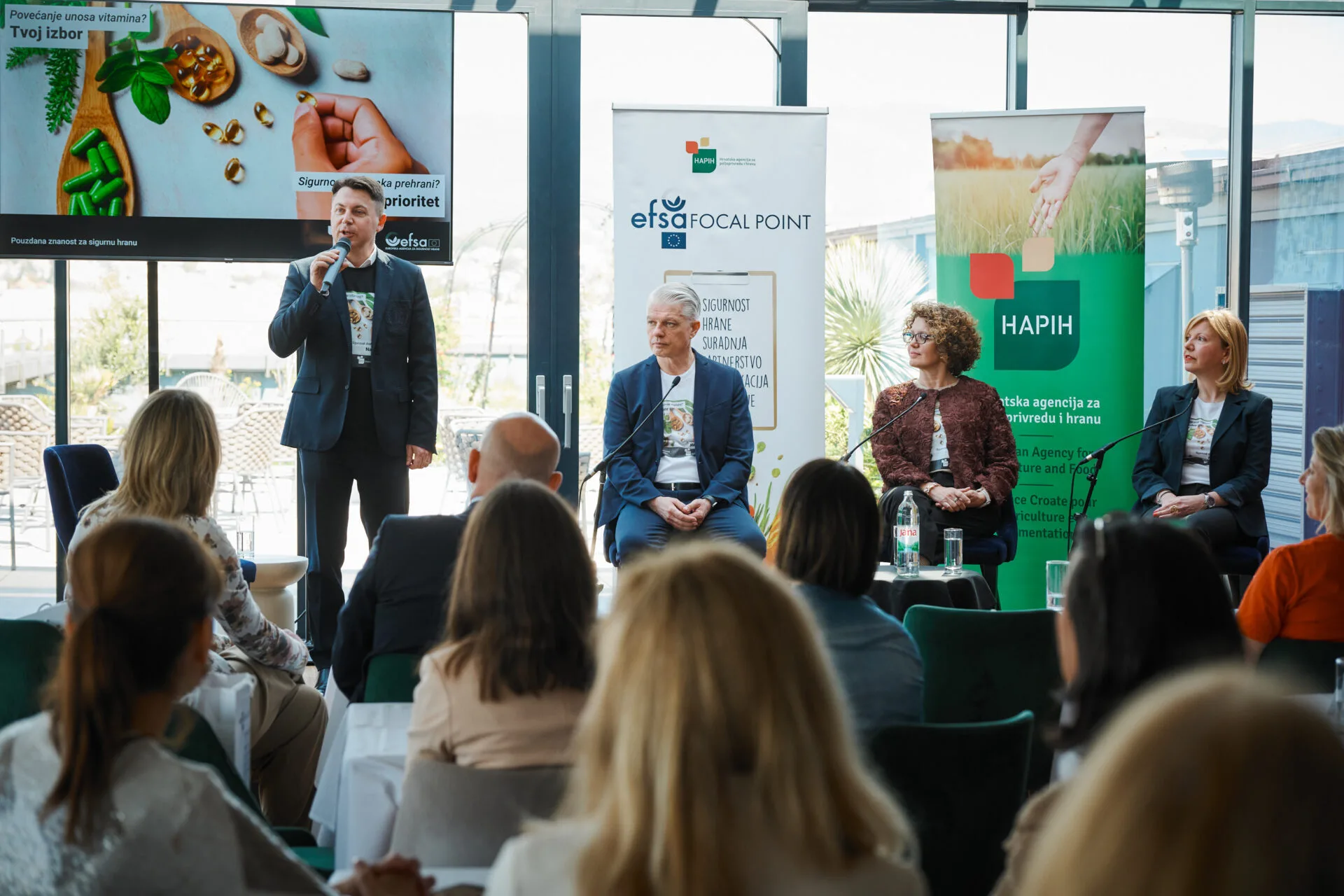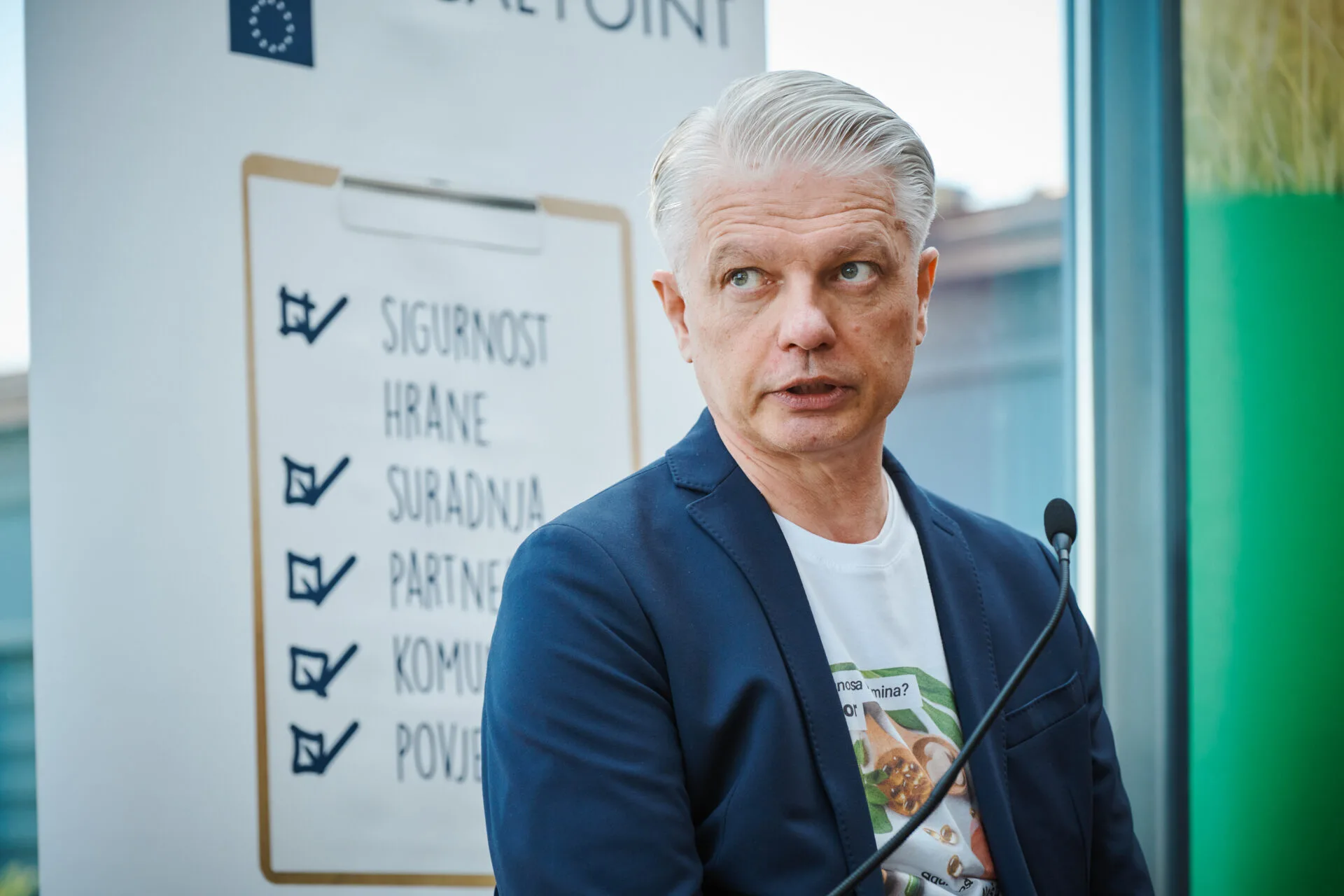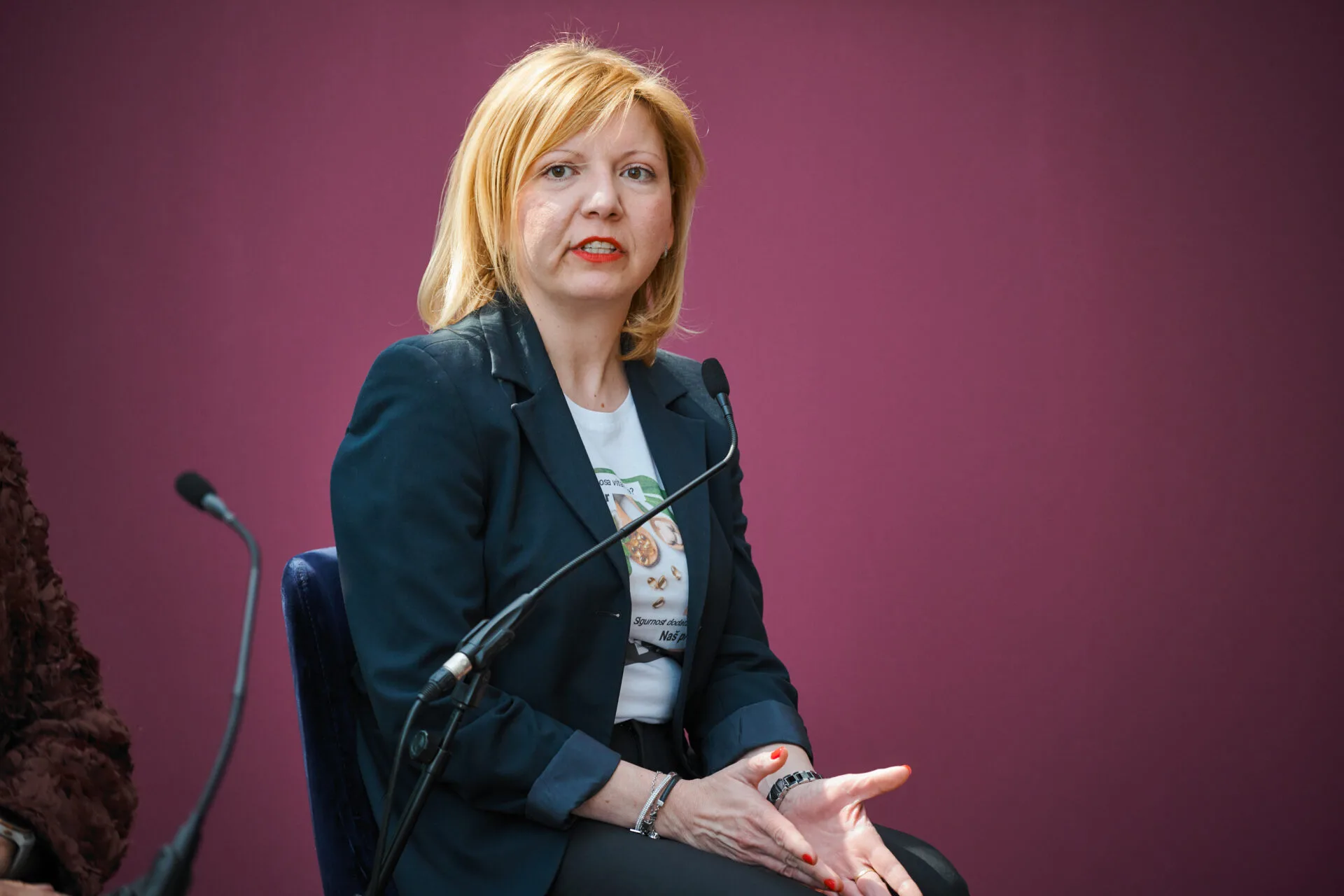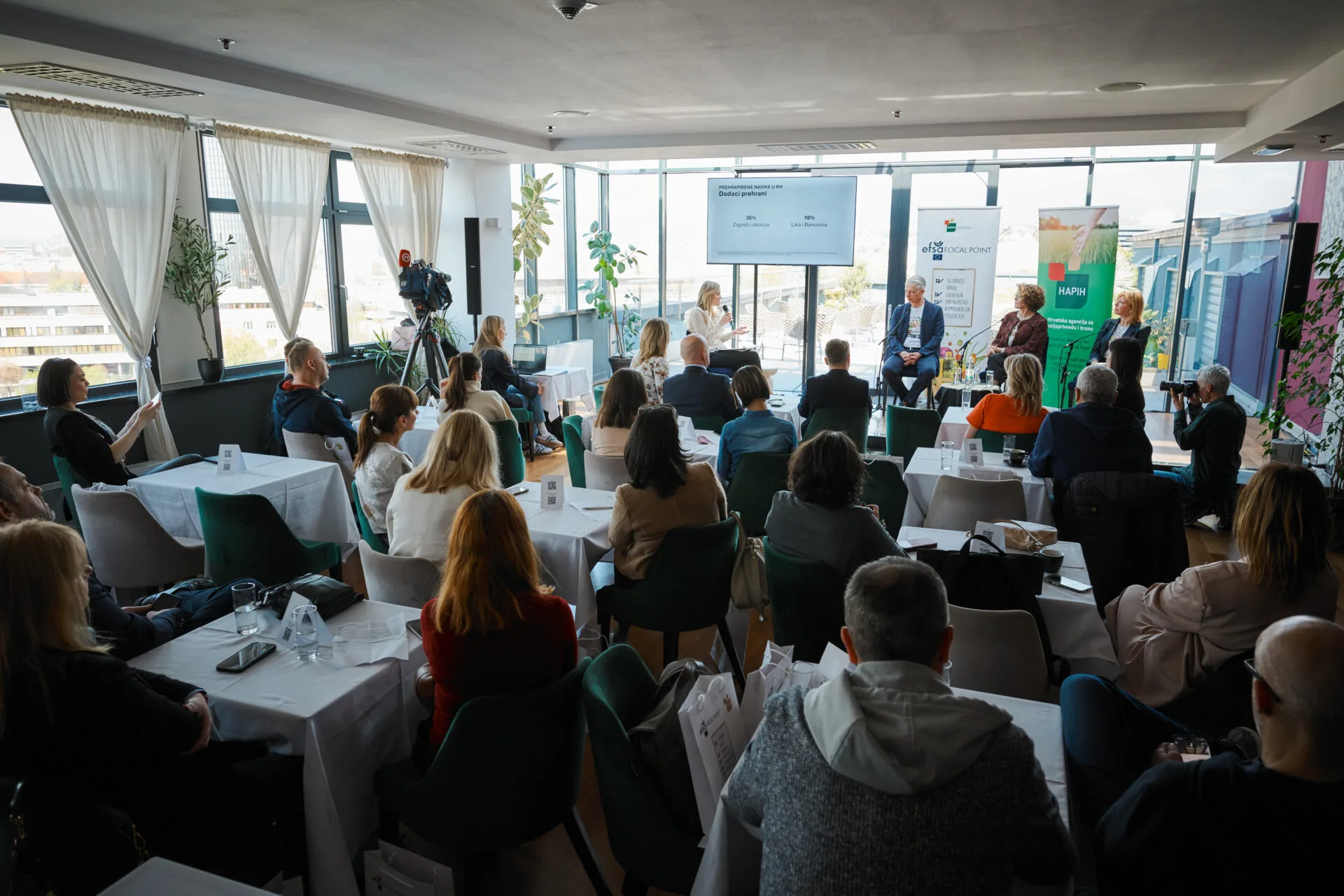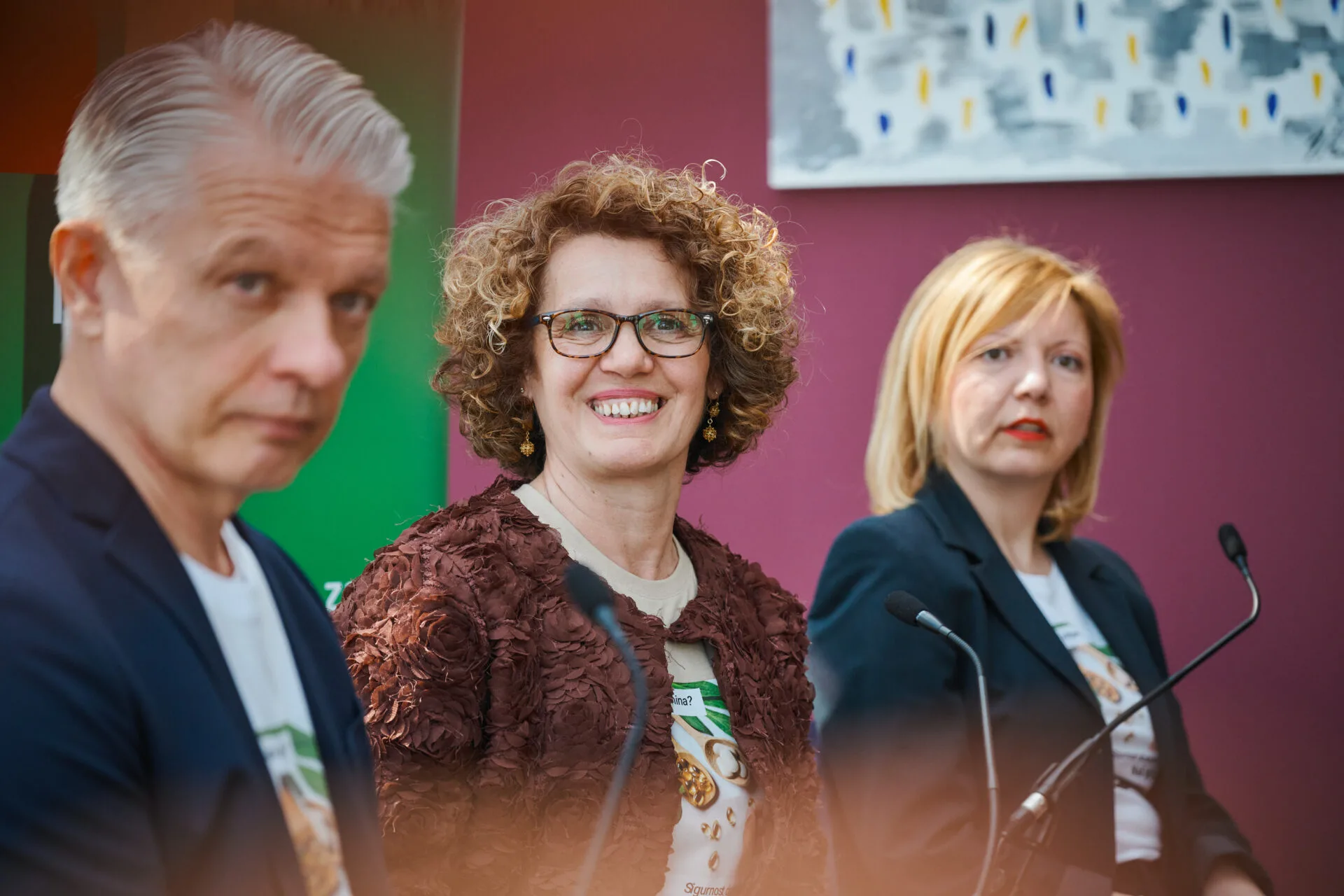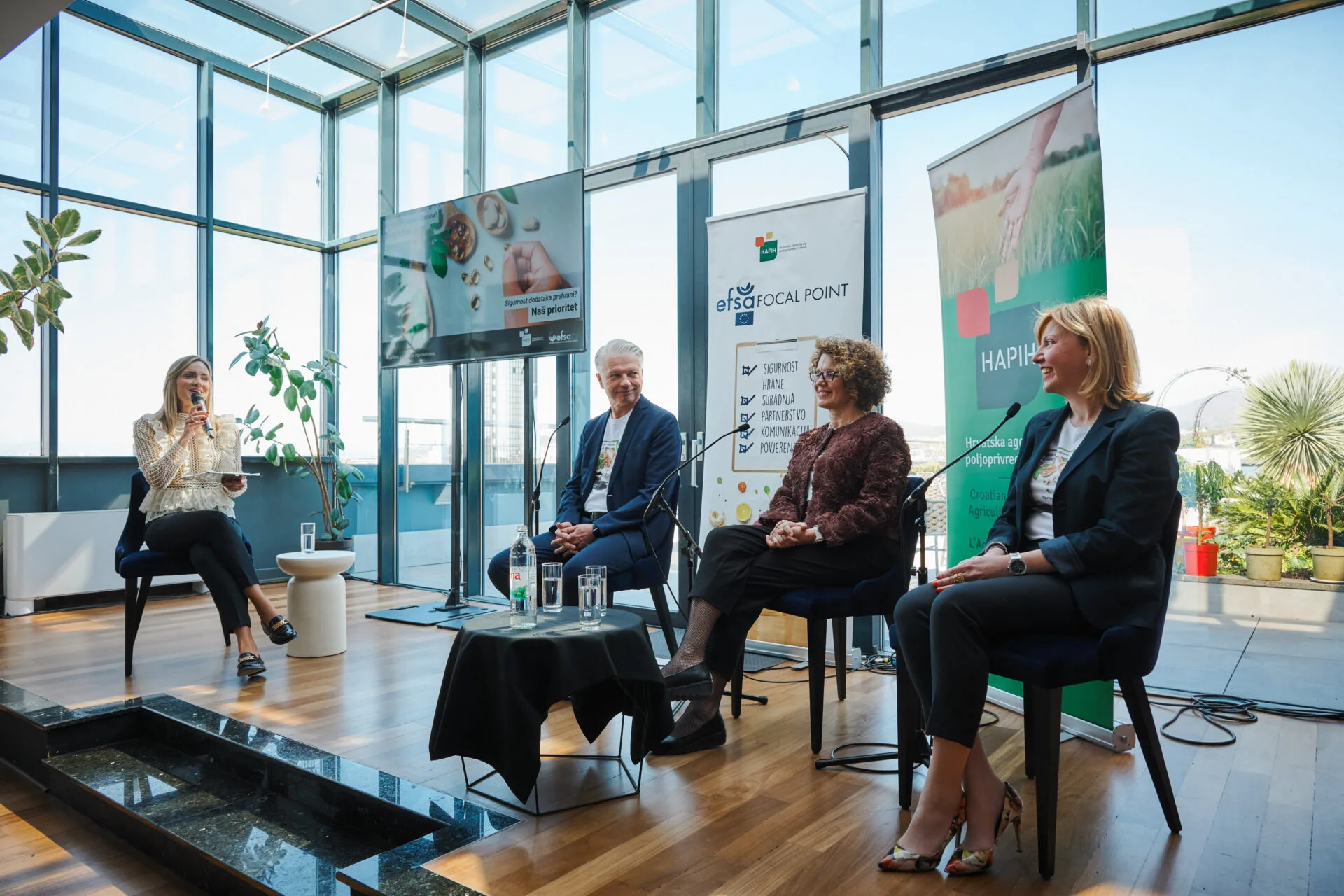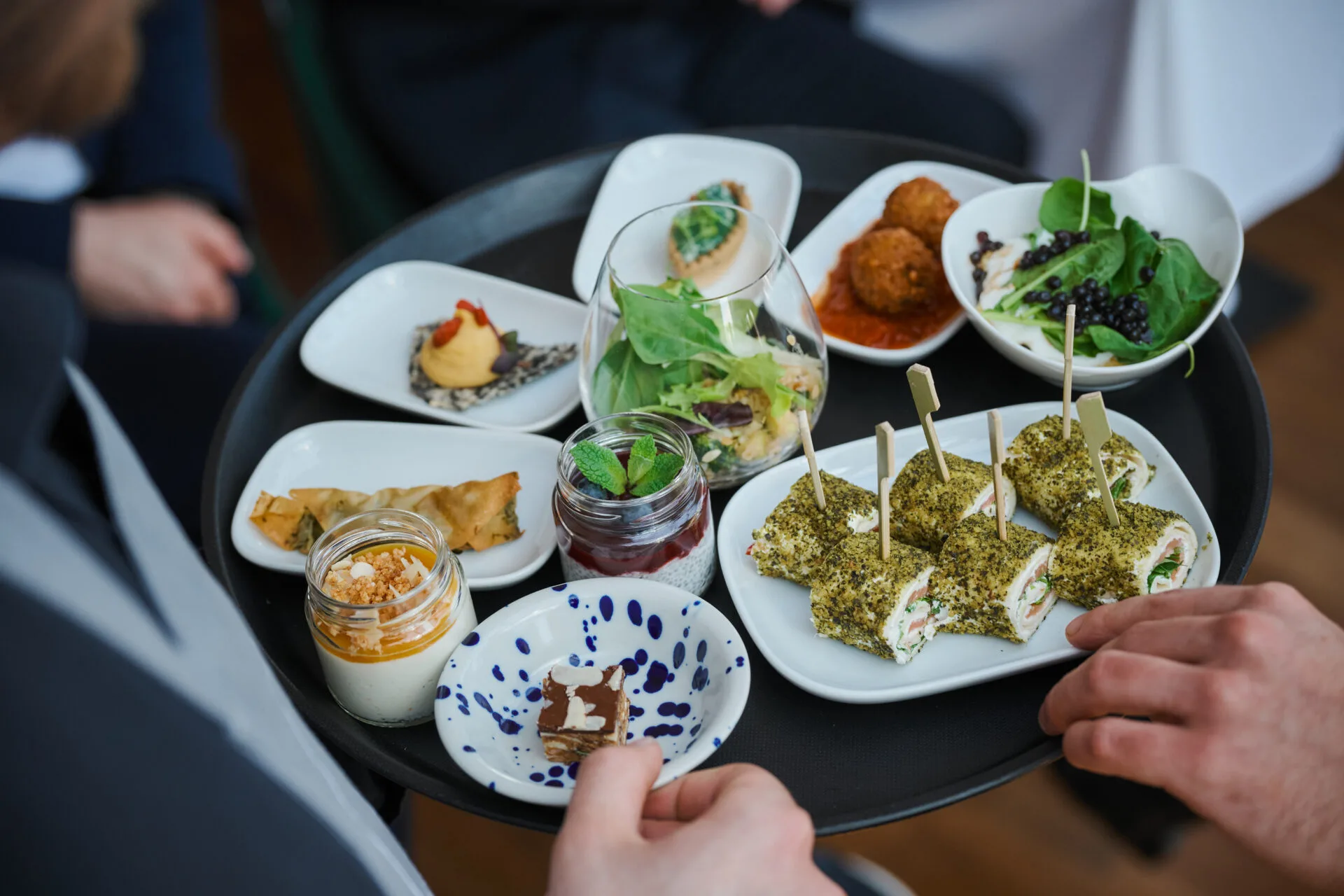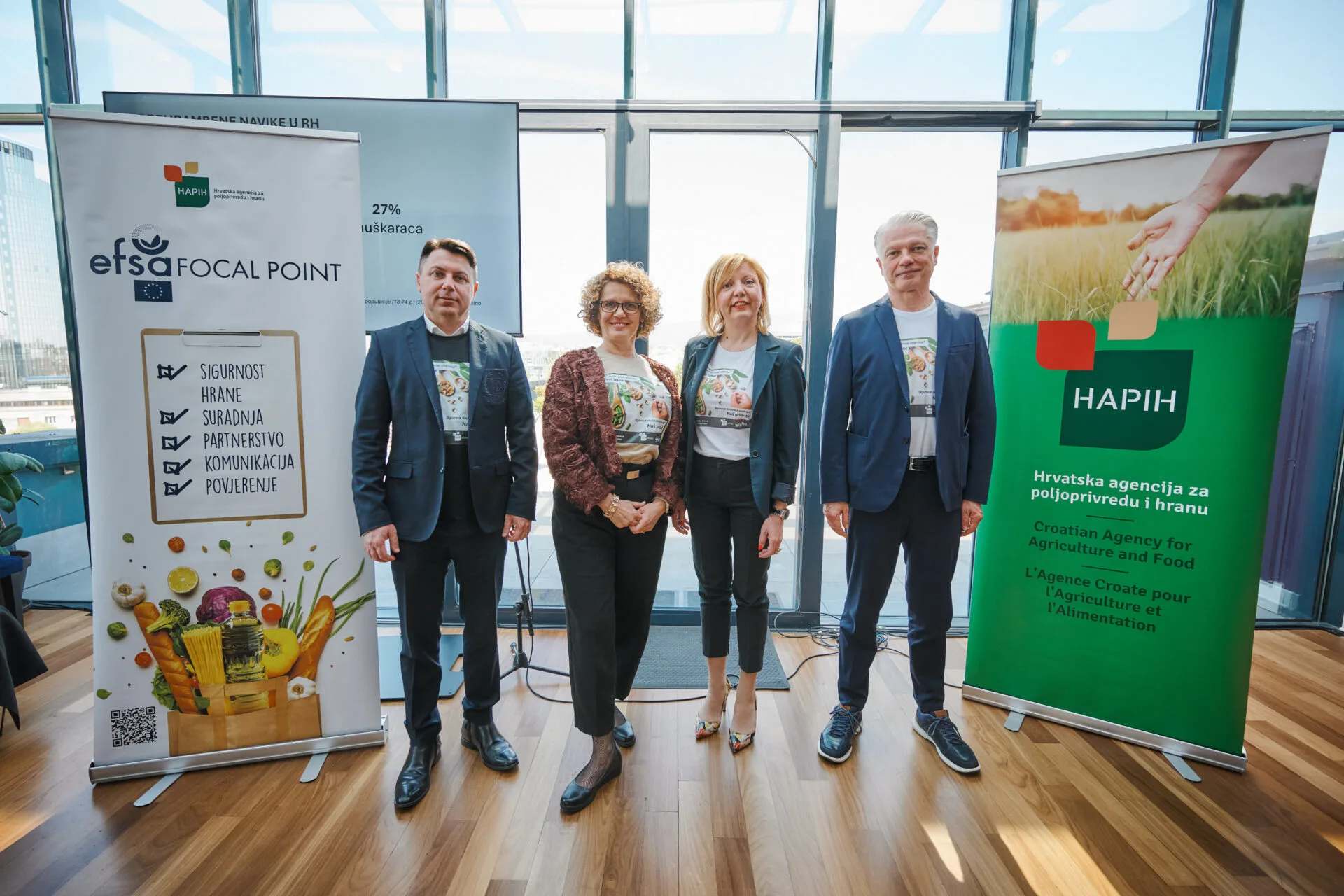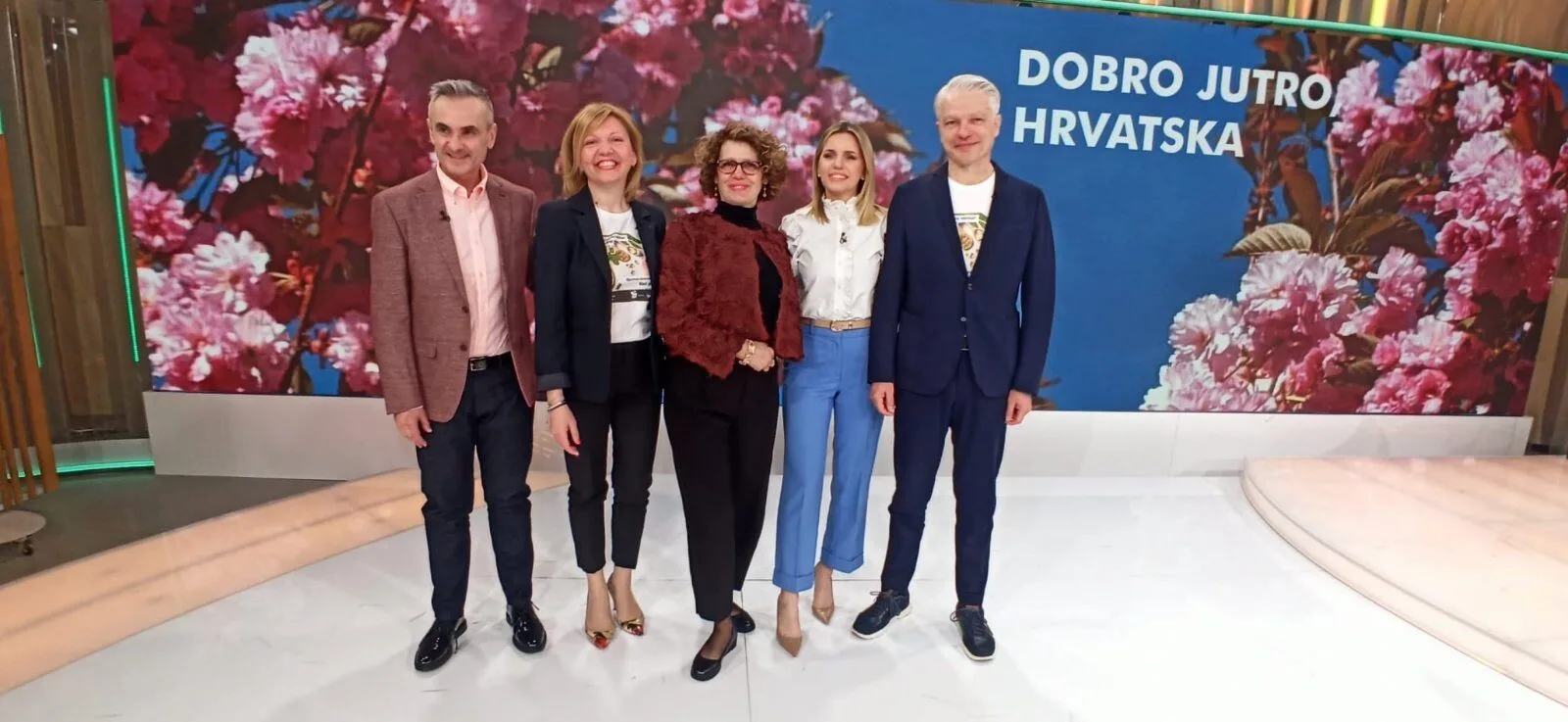A new edition of the educational campaign Safe2Eat, led by the European Food Safety Authority (EFSA), has been launched to raise consumer awareness about food safety and promote critical thinking about dietary choices. This year, 23 European countries are participating in the campaign. In Croatia, the Croatian Agency for Agriculture and Food (HAPIH) continues its role as the national campaign ambassador for the fifth consecutive year.
In addition to ongoing topics relevant to consumers—such as food handling, food labelling, foodborne diseases, food waste, and novel foods—this year’s campaign places a special focus on an increasingly popular topic: food supplements.
Food supplements, which may contain vitamins, minerals, herbal extracts, microorganisms, and other bioactive ingredients, are becoming an increasingly common part of daily dietary habits. According to the latest research by HAPIH, nearly a third of Croatian citizens (29 %) use food supplements. Among them, 18 % are adults, while children make up a significantly larger share at 41 %—a trend that aligns with the increased need for specific vitamins during early development.
Consumption is almost equally distributed between women (30 %) and men (27 %). Regionally, the highest usage is noted in Zagreb and its surrounding areas (35 %), whereas the lowest is in Lika and Banovina (10 %).
The most commonly used food supplements include vitamins and multivitamins, especially D3 vitamin drops and vitamins combined with probiotics. Adults use magnesium, iron and vitamin C combined with zinc more frequently, while children usually consume immunity – boosting syrups and multivitamin – probiotic chocolate bars.
More products – more risks
The global food supplements market is experiencing rapid growth. According to Polaris Market Research, the market, valued at nearly $179 billion in 2023, is projected to grow by 8.8 % annually through 2032. This trend is also reflected in Croatia, where the Ministry of Health has received nearly 1100 requests for registering new food supplements, marking a 30 % increase over the past five years. As food supplement consumption increases, consumer concerns regarding their safety, effectiveness, and proper usage increase as well.
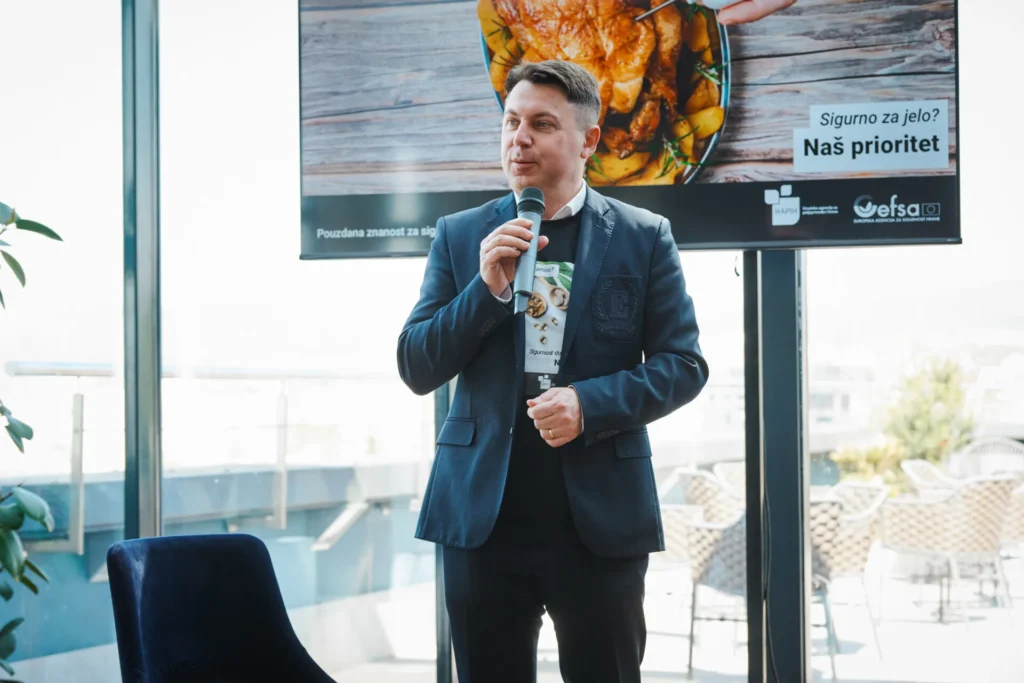
“Due to the increasing variety of products on the market and often unverified information available to the public, consumers are uncertain about which food supplements to take, where to purchase them safely, or even whether they need to use them at all. For this reason, we have included this topic in this year’s campaign from a safety perspective, aiming to provide consumers with clear, science-based information. According to Eurobarometer data, more than 60 % of consumers obtain information about food safety risks online and on television, highlighting the importance of educating and informing the public through all available platforms,” said Krunoslav Karalić, Acting Director of HAPIH, adding that other current food-related topics will be explored in greater detail at the upcoming FOODCOOLTOUR conference, which will take place in Osijek this May.
Food supplements do not replace a balanced diet
During a discussion held to mark the launch of this year’s Safe2Eat campaign, experts highlighted the key guidelines for safe and responsible consumption of food supplements.
“Food supplements are not a replacement for a healthy and balanced diet. Their use should be targeted, specifically when there is an increased need for particular nutrients or insufficient intake. Most nutrients can be obtained through a balanced diet, though there are exceptions. For instance, vitamin D is often not obtained sufficiently through diet alone, especially during the winter, making supplementation justified. It is crucial that individuals with health issues consult a nutritionist before taking food supplements, rather than relying on advice from online sources or social media. Another issue is that most consumers fail to read the labels, which contain essential information about food composition and correct usage,” said Professor Ines Banjari, Ph.D., full professor in the field of nutrition at the Faculty of Food Technology in Osijek (PTFOS). She also emphasized the importance of understanding how certain supplements can interact with food ingredients: “It’s essential to know how to use food supplements properly, as incorrect application can lead to undesired effects. For example, vitamin D should be taken with a meal containing fat, as it will not be absorbed effectively without it.”
„Although food supplements can play an important role in preserving our health, their wide availability on many selling sites and a wider offer carry certain risks“, emphasized Dražen Knežević, Ph D, Head of the Center for Food Safety of HAPH.
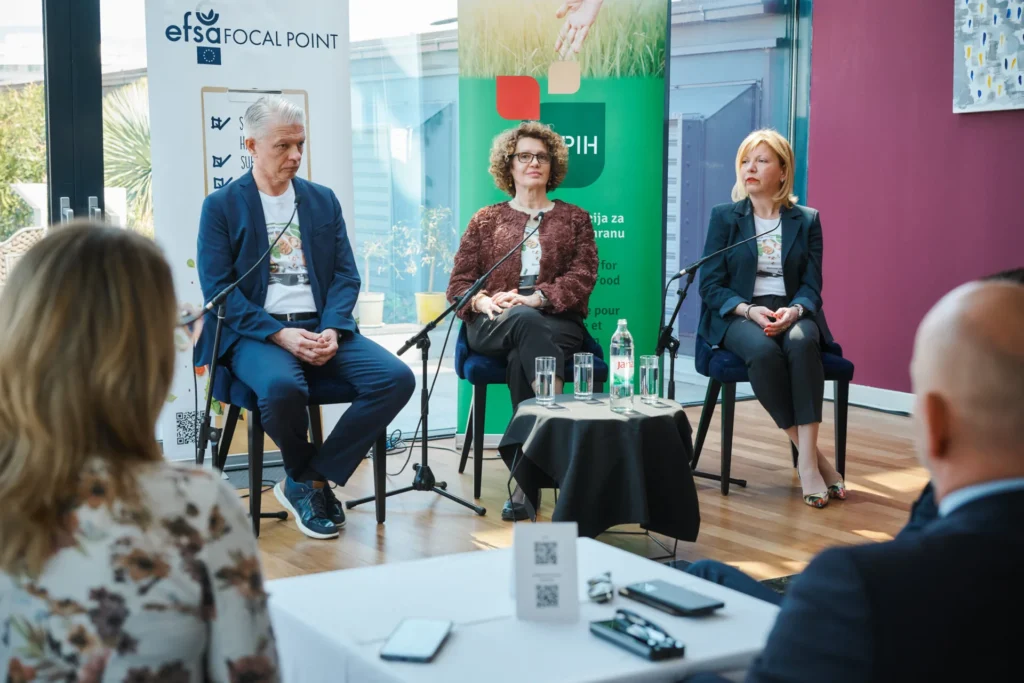
“Correct dosage is crucial when it comes to food supplements, in addition to considering their composition. As concentrated sources of nutrients, these supplements are regulated by the Food Law. However, consumers sometimes exceed the recommended daily dosage. It’s essential to choose supplements wisely, based on individual needs, and always read labels carefully to avoid overconsumption. Purchase supplements only from trusted stores and pharmacies. Extra caution must be taken when buying food supplements online or through social media, as products may lack safety assurances, proper labelling, or even registration within the Ministry of Health’s monitoring system. Certain interactions between supplements can lead to side effects, most commonly digestive issues or rashes. All side effects should be reported through the nutrivigilance system,” advises Lea Pollak, PhD, from the Department of Food Additives, Biologically Active, and Psychoactive Substances at the Croatian Institute of Public Health.
In Croatia, many institutions are partners to the Safe2Eat campaigns, such as: Ministry of Agriculture, Forestry and Fisheries, Ministry of Health, Croatian Institute of Public Health, Teaching Institute for Public Health „Dr. Andrija Štampar“, Faculty of Food Technology and Biotechnology of University of Zagreb, Faculty of Food Technology in Osijek, Faculty of Agrobiotechnical Sciences in Osijek, Faculty of Veterinary Medicine of University of Zagreb, Croatian Chamber of Commerce, Croatian Association of Nutritionists, Croatian Society of Nutritionists and Dietitians, Center for consumer education and information, European Center for Consumer Excellence in Zagreb and Hospitality and Tourism School in Osijek.
In Croatia, numerous institutions are partners in the Safe2Eat campaign. These include the Ministry of Agriculture, Forestry and Fisheries, the Ministry of Health, the Croatian Institute of Public Health, the Teaching Institute for Public Health ‘Dr. Andrija Štampar,’ the Faculty of Food Technology and Biotechnology at the University of Zagreb, the Faculty of Food Technology in Osijek, the Faculty of Agrobiotechnical Sciences in Osijek, the Faculty of Veterinary Medicine at the University of Zagreb, the Croatian Chamber of Commerce, the Croatian Association of Nutritionists, the Croatian Society of Nutritionists and Dietitians, the Center for Consumer Education and Information, the European Center for Consumer Excellence in Zagreb, and the Hospitality and Tourism School in Osijek.”
Campaign reached up to 50 million consumers in Europe
According to EFSA, the Safe2Eat campaign has reached over 50 million consumers across Europe over the past five years, contributing to a significant increase in consumers’ knowledge regarding food safety.
„The Safe2Eat campaign bridges the gap between science behind food safety and everyday decisions by providing clear and practical information. With the inclusion of more countries in 2025, we are taking another step forward in our mission to ensure that every European citizen has access to reliable and science-backed food safety guidelines“, stated Bernhard Url, Executive Director of EFSA.
More information and advice on food safety is available to the consumers on EFSA’s official website.
